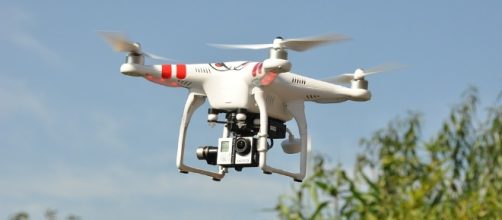drones are gaining popularity every year as hobbyist uses the aerial devices for recreational purposes. Drones are even used by photographers to take photos and videos from dramatic angles which were almost impossible to achieve just a few years ago.
However, new technologies often come with its own disadvantages; as drones are now being used by criminals to smuggle contrabands such as Mobile Phones, drugs and even pornographic materials into federal prisons for the past five years, according to a report by USA Today.
Drones for criminal minds
Troy Rule, a law professor at Arizona State University and a drone legislation advocate, said that drones are getting cheaper and becoming more easy to use.
Perhaps this is the reason why criminals are using this technology to smuggle contrabands into prisons which are otherwise impossible with conventional methods.
Criminals are somehow able to make use of the latest trends for their evil deeds.
The attempts to smuggle contrabands
According to the uncovered documents, a man who was recently released from prison together with two more accomplices were tried and convicted of trying to smuggle pornographic materials and drugs using a drone into Maryland’s Western Correctional Institution.
In 2015, an inmate at the federal prison in Victorville, California, was able to have an accomplice to deliver him two mobile phones using the aerial device. It had taken five months before jail officials were able to discover the contrabands in the inmate’s possession.
The United States Penitentiary in Atwater, California, the Federal Correctional Institution in Seagoville, Texas and the Federal Correctional Institution in Oakdale, Louisiana have similar incidents with the drones. However, details about the incidents were not disclosed due to security reasons.
How do federal prisons prevent this new threat?
At this time, there are no laws that prevent drones from flying over near correctional facilities. However, Justin Long, a spokesperson for the Bureau of Prisons, said that the agency is in talks with the Department of Justice to develop counter-measures to prevent contrabands from being smuggled into prisons by the use of flying drones.
Anti-drone jammers may also be used by prisons to prevent such incidents.
These devices can disable the signals of the drones and can provide a digital protective shield, which can hack into the drone’s operating system.
Also, the Drone Federalism Act, which is a bill pending in the Senate, would allow states and municipalities to enforce their laws as counter-measures against flying drones.


